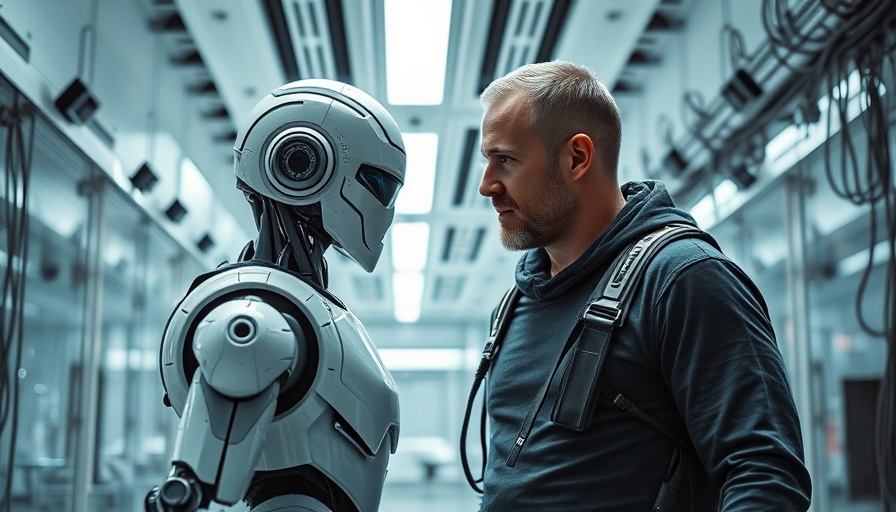
OpenAI's Historic Funding Round: What Does It Mean for the Future?
OpenAI has officially closed the largest private financing round in history, raising an astonishing $40 billion at a valuation of $300 billion. This fundraising milestone doubles the company's valuation just six months prior and comes during a pivotal evolution in their approach to the AI landscape.
In 'Is OpenAI Actually Going to Be Open Again?', the discussion dives into OpenAI’s recent monumental funding and possible shift back to open AI models, revealing insights that merit deeper analysis.
Shifting Towards Openness: A Strategic Turn?
Perhaps even more significant than the impressive funding is OpenAI's announcement that they plan to release their first open weight language model since GPT-2. Sam Altman, CEO of OpenAI, remarked on this decision, emphasizing the importance of releasing a model that others can run on their hardware. This event signifies a potential return to OpenAI's foundational philosophy of openness—something that has been under heavy scrutiny in the face of a competitive AI landscape dominated by both private and governmental interests.
Understanding Open Weights in AI Development
The term "open weights" refers to a model that allows developers to host and modify it on their own hardware. As pointed out by Steven Haidell, head of API, this implies that the company is likely not just releasing older models but introducing something potentially new and optimized for wider accessibility. This shift could pave the way for more independent innovations in AI, fundamentally reshaping who can leverage these technologies.
The Chinese Landscape: Competition and Influence
An interesting context for OpenAI's shift stems from the rapid advancements in AI technologies inside China, particularly with regard to a competitor known as DeepSeek. This company released its own model, which quickly found integration in Chinese tech services, illustrating a national push for AI dominance. Balaji Srinivasan characterized China’s approach as "open source modernization," suggesting that they embrace openness to enhance global competitiveness. Such developments raise crucial competitive questions for OpenAI, as they navigate a landscape where open-source models are becoming increasingly normalized.
The Implications of Going Open Source
With OpenAI adopting a more open-source strategy, they may aim to assert dominance in markets that are not solely driven by profit but also by values in AI development. Sam Altman has pointed out that while phenomenal growth has characterized OpenAI, a global AI competition may necessitate a broader open-source approach. This evolution could also allow them to reach audiences outside of their traditional licensing framework and build partnerships across a myriad of industries.
Challenges Ahead: Risks of Open Models
While there are potential benefits to releasing open models, there are also inherent risks. Allowing users to modify and deploy these models raises safety and control concerns, particularly around misuse. OpenAI plans to evaluate their models in a robust manner as they embark on this journey to ensure responsible usage. However, the balance between encouraging innovation and maintaining ethical standards will be a tightrope walk in the coming months.
The Future of AI Literacy: New Initiatives by OpenAI
In addition to shifting towards open AI models, OpenAI has launched the OpenAI Academy, a free online resource designed to enhance AI literacy across diverse populations. This initiative aims to democratize access to AI technologies and education, encouraging innovation among new developers and businesses alike. By providing accessible resources and best practices, OpenAI strengthens its commitment to shaping an inclusive future for AI.
For business owners, these developments present an opportunity to leverage the upcoming open weights model and educational resources offered by OpenAI. Getting ahead in AI adoption today could mean reaping significant rewards tomorrow.
As we look ahead, the implications of OpenAI's pivot towards open-source AI could serve to redefine competitiveness, ethical standards, and innovation strategies in the AI sector.
 Add Row
Add Row  Add
Add 




Write A Comment